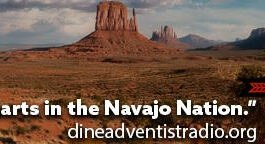Sabbath School Lesson for April 10-16, 2021
For videos about the lesson on Tue, Wed, and Thu, see https://www.youtube.com/teresathompson
Livestreaming on those days at 3 p.m. CST from the Facebook group “The Teacher’s Notes on the Sabbath School Lesson”
Overview of Lesson 3
These topics will be covered this week…
- how sin got so bad by the time of Noah (Sunday)
- what made Noah stand out from his neighbors (Monday)
- what did God’s covenant look like for Noah (Tuesday)
- how did the rainbow symbolize God’s promise (Wednesday)
- what does this first remnant (those left) mean today (Thursday)
Memory Text: “But Noah found grace in the eyes of the Lord.” Genesis 6:8
God is all about saving those He can find who desire to be saved. But this desire must translate into following God’s directions and demonstrating love for and trust of Him.
Noah seems to have fit that description pretty well when he was chosen by God to preserve himself and his family. It was done to save Noah’s family and all those who might chose to follow God in the future. There has always been a remnant to share God’s grace with the world. He depends on His faithful few to carry on His work of saving our planet.
The fact that God chose water, and not fire for this first cleansing of the earth, shows His grace. Water is symbolic of washing away our sins. This first cleansing was a type of the end-time destruction by fire that will someday devastate our world again. But for the time being, God would remedy the situation in the best way possible, as He always does.
Sunday: The Sin Principle
We marvel at how the world got so wicked so fast. In just a few generations, our earth went from being “very good” (Genesis 1:31) to being so evil and violent that God couldn’t stand it any more. To reach God’s threshold of tolerance with sin says a lot for just how bad things had progressed by Noah’s lifetime.
Suffering humanity was the crucial factor in God’s decision. Their cruel treatment of each other had to stop, or soon the whole earth would be destroyed anyway. God’s way was a more merciful means of extinction. Our rebellion had to be addressed, and we know God handled it in the most loving way.
The sin principle, which seems to have overtaken all of society back then, was countered with God’s principle of mercy and justice. God will always take care of sin, but He will always love and reach out to the sinner as well. Consider all those years of sermons that Noah was called to deliver. He preached about the coming flood for 120 years!
We can rest assured that God will have victory in the end and that we, like Noah, can be saved from the ultimate result of sin on that final judgment day.
Bible Verses to Read and Discuss:
Genesis 1:31, 6:5, 11
- What was the result of evil thoughts?
- Who suffered from the violence in the world?
Genesis 4:5, 8 and Matthew 5:23, 24
- What harm is there in evil, angry thinking?
- What alternative to anger does Jesus suggest?
- Why is it important to be reconciled with each other, and with God? Can we be angry at God?
Monday: The Man Noah
We get a glowing picture of Noah from just one verse–Genesis 6:9. Yes, he found grace in God’s eyes (Genesis 6:8), and here’s why:
- He was a just, or righteous, man. He consistently did the right, loving thing. He made good choices.
- He was blameless. There was nothing you or God could blame him for. And it was not his nature to blame others.
- He walked with God and was as close to Him as it was possible to be. He listened and talked to God. He had a healthy prayer life.
No wonder God chose Noah to save when the devastating flood was going to destroy all life on earth. Noah was someone God could trust, because he had demonstrated righteous behavior, in contrast to all those around him. Noah trusted God, too. He recognized that God was full of loving grace. His character of love had made an impact on Noah’s life, even with the whole world around him being so wicked.
Had Noah sinned at some point in his life? Undoubtedly he had, because he was human. Like all of us, he had his faults and made mistakes, but he was also serious about following God. The definition of grace is unmerited favor. Noah hadn’t earned God’s grace. But he had searched for it, and God rewarded his efforts to know Him.
Bible Verses to Read and Discuss:
Genesis 6:8, 9 and 2 Peter 2:5
- Why is it important to live righteously, but to also preach it?
- What are ways that we can “preach” righteousness without delivering a sermon?
Hebrews 11:7
- Why did Noah need faith to do what he did for God?
Tuesday: Covenant With Noah
The first hint of a covenant back in Genesis 3:15 said that God would put enmity between Satan and the woman (symbolized by God’s church, His faithful ones). Now, in this first mention of a covenant with Noah, He calls it MY covenant (Genesis 6:18). This tells us that God is the one who initiates the agreement. He is the origin of grace that makes the whole covenant possible. And it’s always a saving grace. In this case, Noah and his family being saved from the great Flood that would devastate the earth.
An analogy of this situation would be a man falling overboard from a boat on a stormy sea. A caring individual throws him a life preserver. But the person drowning must grab the preserver for it to do him any good. That’s why Noah had to follow God’s directions in building the ark, preach God’s warning for 120 years, and get in the ark at the specified time. Their salvation depended on grabbing the “life preserver”, or covenant, God would extend to them.
In this analogy, we might wonder why the person didn’t jump in the stormy water to save the person, instead of throwing him a flotation device? Perhaps that answer lies in the fact that God was not their equal.
Later, when God took human flesh upon Himself, and came in the form of the Messiah, we can more easily see this happening. Jesus dove right in the water, despite the danger, to save us when He endured the cruel cross. We still must allow Him to bring us to safety though. We mustn’t fight the hand that reaches out to pull us out of the stormy sea.
Bible Verses to Read and Discuss:
Genesis 6:18
- Why was it called “My” covenant, and not “our” covenant?
- What did Noah’s family do to indicate their faith and allow them to be partakers of God’s covenant?
Wednesday: Sign of the Rainbow
Imagine how awestruck Noah’s family must have been, as they witnessed the first rainbow in the sky after their long ordeal. This was the first time they were given such a beautiful, colorful sight that filled the sky with wonder and hope. Rain had not previously happened on the earth until the great Flood (Genesis 2:5, 6).
God spoke to Noah and revealed that this magnificent phenomenon would be a sign of His everlasting covenant with all people. He promised never to allow the whole world to experience such a Flood again. See Genesis 9:15-17.
Other covenants that followed Noah’s time, such as the ones with Abraham and Moses, included obligations for the people to follow. But this covenant sign was universal and was not dependent on obedience. All living creatures, in all future generations, would benefit from the promise expressed in that rainbow.
It could only have come from a God who cares deeply and loves unconditionally. How these emotions must have been felt by God, after the arduous experience of Noah’s family. God had been with them throughout their struggle. Although time estimates differ, they may have spent about a year on the ark, before it was safe enough to venture out on dry ground again. What a welcome sight to them was that first, beautiful rainbow in the sky.
Bible Verses to Read and Discuss:
Genesis 2:5, 6 and Hebrews 11:7
- How did the lack of rain affect Noah’s faith and his ability to convince people of the impending danger?
Genesis 9:12, 13
- Why was it important for them to have a sign of the covenant, after such a traumatic ordeal?
Genesis 9:15-17
- Why was it important for all mankind to know of this covenant? Why was it so inclusive?
Thursday: “Only Noah Was Left”
The theme of a remnant is found throughout the Bible. God preserves a people who love and serve Him–with whom He can have a relationship and enjoy communion. This was the whole point of creating mankind in the first place.
In Noah’s case, the remnant was about as small as it gets. Only eight people, Noah and his family, survived the great deluge that changed the planet forever. The whole world had turned against God. God’s intervention was necessary, if someone would be left who would welcome the Messiah.
It was certainly not God’s intention or desire that the world would become so wicked. But we find hope in the fact that God could and did take care of His faithful ones. Jesus reminded us that the last days would be similar to Noah’s experience (Matthew 24:37).
The remnant in the last days must listen to and obey God’s commandments. We must have the testimony of Jesus, our Savior, in our hearts and minds to survive the next chapter in the plan of our salvation (Revelation 12:17).
Bible Verses to Read and Discuss:
Genesis 7:23, 45:7 and Isaiah 11:11
- For what purpose does God preserve a faithful remnant people?
Revelation 12:17 and Deuteronomy 31:26
- If the purpose of Noah’s ark was to save His people, what was the purpose of the ark of the covenant?
- In what way do God’s commandments save us?
Friday: Final Thoughts
There are many spiritual and practical lessons from Noah’s story. In relation to God’s covenant, however, it shows us that God is not passive in His care of this earth and those living on this planet. He takes drastic measures, when necessary, to ensure the salvation of as many as choose to follow Him.
God’s covenant, or agreement with mankind, must be continually expressed, explained, and renewed. People change, their needs change, and God acts according to what is best for the whole universe. As we shall see, God’s mercy and justice shine through everything He does. And our requirements to trust and obey Him are likewise necessary ingredients for God’s plan of salvation, as delivered to us in His covenants.
As the title of our lesson this week suggests, all future generations after Noah will understand better just how bad sin can get and how we must listen to God for direction and guidance, if we are to be delivered from our own destructive behaviors.
The purpose of God’s covenant is to provide guidelines for how to obtain our salvation and secure eternal life with Him. It applied to Noah, but equally is offered to us, the generations that followed this great man of faith.
Next Week: Sabbath: An Everlasting Covenant
To read the Sabbath School Lesson Quarterly or see more resources for its study, go to









